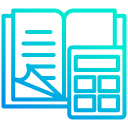Financial Reporting Foundations: MPERS, MFRS, and the Companies Act 2016
Most Malaysian SMEs adopt MPERS because it is principle-based, lighter than full MFRS, and widely accepted by banks. Pick consciously, document your rationale, and brief your board. If you later outgrow MPERS, plan the transition carefully. Share your framework questions in the comments so we can clarify with practical examples.
Financial Reporting Foundations: MPERS, MFRS, and the Companies Act 2016
Directors are responsible for true and fair financial statements and punctual filings with the Companies Commission of Malaysia (SSM). Keep a compliance calendar for annual returns and financial statement lodgement. Minutes, resolutions, and registers matter during reviews. Want a sample calendar formatted for SMEs? Tell us and we will send a template.




